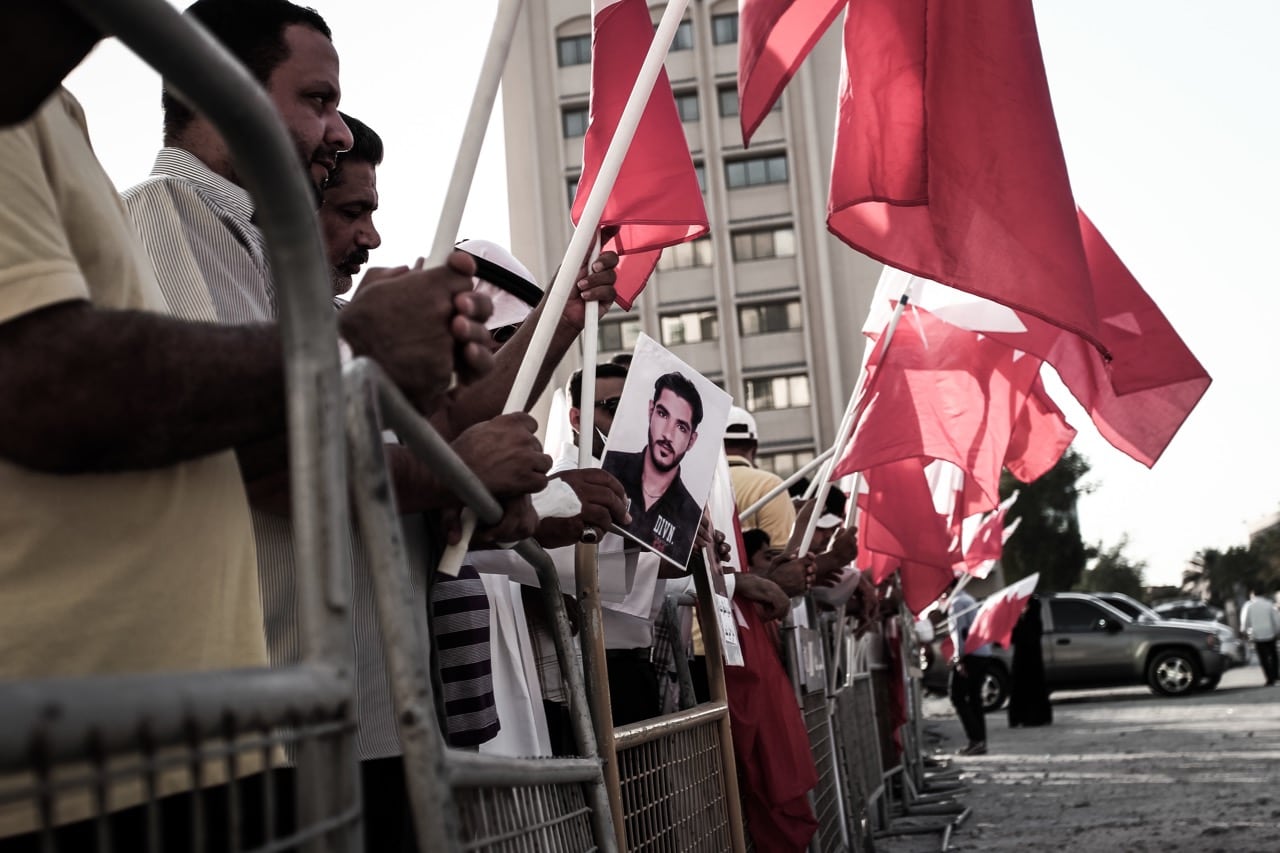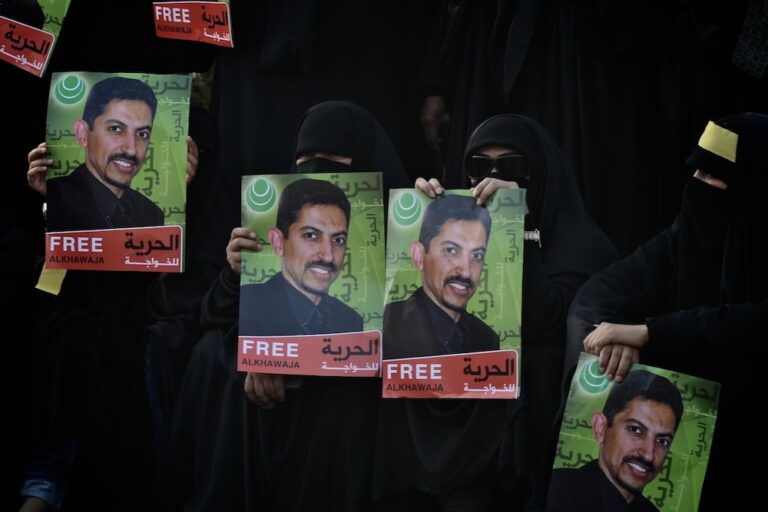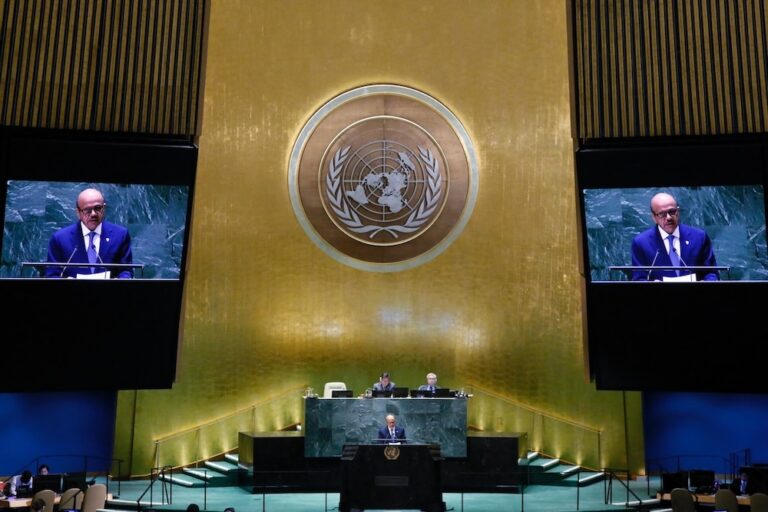Authorities at Jaw prison in Bahrain put the imprisoned human rights defender Naji Fateel in solitary confinement after he leaked an audio recording in which he appealed to human rights organisations to intervene urgently.
This statement was originally published on gc4hr.org on 28 November 2018.
On 12 November 2018, authorities at Jaw prison in Bahrain put imprisoned human rights defender Naji Fateel in solitary confinement immediately after he leaked an audio recording in which he appealed to human rights organisations to intervene urgently. He requested help from the international community to ask the authorities to provide him with appropriate treatment and end the attacks on him in Jaw Prison, where he is serving 25 years in combined sentences.
Local sources confirmed that Fateel started a hunger strike immediately after he was put in solitary confinement. He continued his hunger strike as his health deteriorated, even after he was transferred back to a cell with other inmates on 15 November. Fateel was supposed to call his family on 19 November 2018 but they never received the call and there is no update about his current condition.
In an audio recording from prison, Fateel said he has suffered from pain as a result of mistreatment since his arbitrary detention on 2 May 2013. He said this was in retaliation for exercising his right to freedom of expression and reporting on human rights violations.
Fateel, a Board member of the Bahrain Youth Society for Human Rights, was sentenced to 15 years in prison in September 2013, on charges of establishing “a group for the purpose of disabling the constitution” under Article 6 of the controversial Terrorism Act. The charges were seen as an excuse to silence and punish him for his UN engagement and role in documenting peaceful protests. Photos were widely circulated showing the marks of torture on his back after his arrest, and he suffered health problems in prison.
Then on 10 March 2015, security forces attacked prisoners in Jaw Prison using rubber bullets, teargas and shotgun pellets, following a disruption by prisoners protesting about restrictions on family visits. Fateel was not involved in the protest, but was injured during the attack, suffering a broken leg, and was subsequently sentenced to an additional 10 years for assault and damage to prison property.
“Since the beginning of my detention, I have not had my right to a fair trial, and the arrest was not legal,” Fateel said in the recently-published recording. “During the investigation, I was not provided with the legal guarantees that the lawyer would be present at the interrogation stage, in addition to being subjected to severe physical and psychological torture to remove the confessions of the intelligence service.”
Fateel explained that he had lodged numerous complaints with the authorities regarding his torture, but he had received few results. “The complaints of torture have not been seriously investigated. I have lodged repeated complaints with the relevant authorities: the Special Investigation Unit, the Public Prosecutor’s Office, the Ombudsman’s Office, the Prisoners’ Commission, the National Human Rights Foundation, the Punishment Enforcement Judge and the Attorney-General. I have seen a negligible result, and they just kept my files stacked on the shelves, giving the impression that these actors only serve to polish the image of the government, especially the Interior Ministry.” Fateel called it a “policy of impunity.”
Fateel was also denied treatment, especially from injuries sustained by torture, including hearing loss in his right ear. A planned operation was canceled without explanation, as was treatment for his back pain. “I had clear injuries after repeated torture of the back, and I was not treated, and my medical file proves that,” he claimed.
He concluded his audio message by appealing to “the highest levels of human rights institutions at the local and international levels to work hard to put pressure on the relevant authorities in Bahrain to provide appropriate health care services that are at the core of their responsibilities, to stop the process of physical and psychological torture that involves human dignity and reparation, at the origin of the case.”
In April 2015, the Gulf Centre for Human Rights (GCHR) received reports that Fateel was among prisoners being subjected to “physical and psychological torture,” and that he had suffered a broken leg and nose.
According to some reports, Fateel attended one daughter’s wedding on 2 July 2018 in family court wearing handcuffs. He also attended another daughter’s wedding on 19 April 2018.
GCHR fears for Fateel’s well-being, as well as his physical security, and calls for his complaints of torture and mistreatment to be fully investigated.
GCHR calls on the authorities in Bahrain to:
1. Free Naji Fateel and all wrongfully detained human rights defenders who are in prison for exercising their right to freedom of expression;
2. Investigate allegations of poor conditions and the torture of inmates in Jaw prison;
3. Ensure human rights defenders are protected from any harassment, torture, and persecution in relation to their peaceful human rights activities; and
4. Provide detained human rights defenders proper medical care and attention, and the rights afforded to prisoners under the UN’s Standard Minimum Rules for the Treatment of Prisoners.



